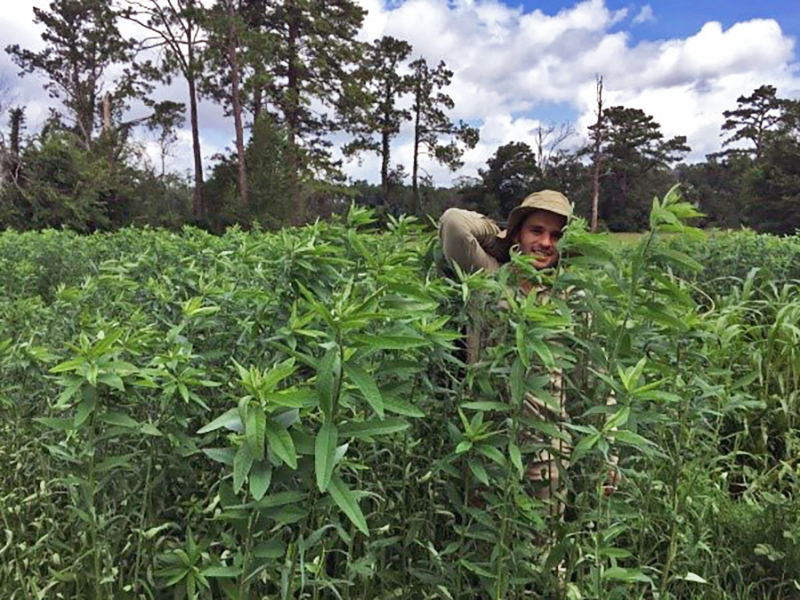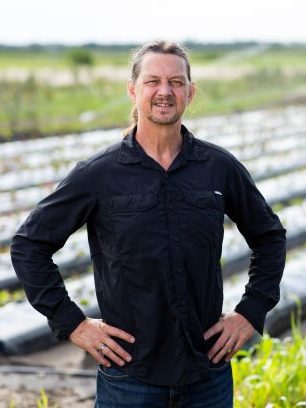By Clint Thompson
The fallow season means an opportunity for specialty crop producers to implement cover crops. It is a management tool that helps growers remain sustainable now and into the future.

It is also a practice that Johan Desaeger, assistant professor of entomology and nematology at the University of Florida Institute of Food and Agricultural Sciences Gulf Coast Research and Education Center, continues to advocate for. He believes there are so many benefits to cover cropping that there is no reason not to do it.

“It’s basically adding organic matter to our poor sandy soils. Especially in our soils, I think it could make a big difference just adding carbon; just adding organic matter to that soil,” Desaeger said. “Nematode management, that’s what we’re focusing on. That’s why we like to recommend things like sunn hemp. It really reduces the root-knot nematode levels in the field. Even in strawberry fields, we think it decreases sting nematode levels.
“There’s a lot of benefits. By growing cover crops, we also believe you increase the biological activity in your soil. You increase your beneficial soil organisms, which make it into a healthier soil.”
According to UF/IFAS, cover crops also control weeds by competing for space, light, water and nutrients. They retain and harvest residual nutrients that would be leached in the off-season and provide mulch cover for row middles
Desaeger believes more specialty crop producers are implementing the cover cropping practice.
“From my discussions talking to growers, I think it’s increasing. The strawberry guys always traditionally did more cover crop planting. Part of that is their season ends March/April. They finish a little earlier than the vegetable spring guys. They have more room for cover crops. They’ve got all summer pretty much, whereas some of the vegetable guys, they’re just finishing up now. Their window is a little narrower,” he added. “But I can see talking to some of the tomato guys, they’re getting back more into the cover crop planting, especially for summer.
“It requires a little bit of extra work, but I think the payoffs in the end far outweigh the costs that it involves.”










